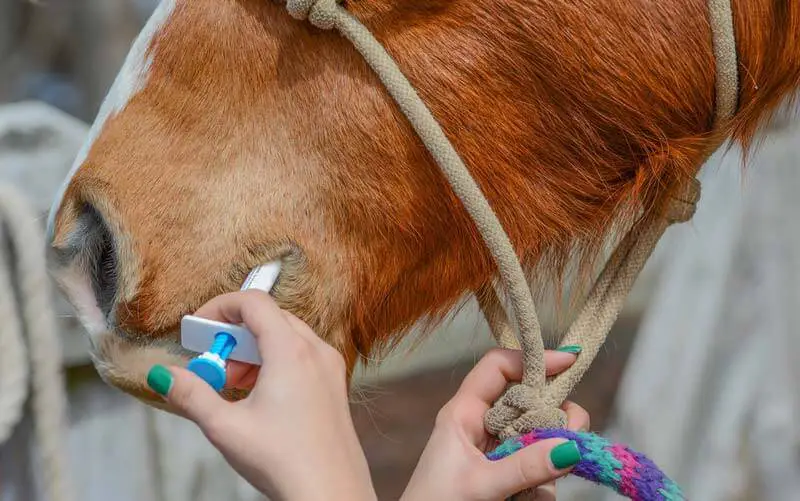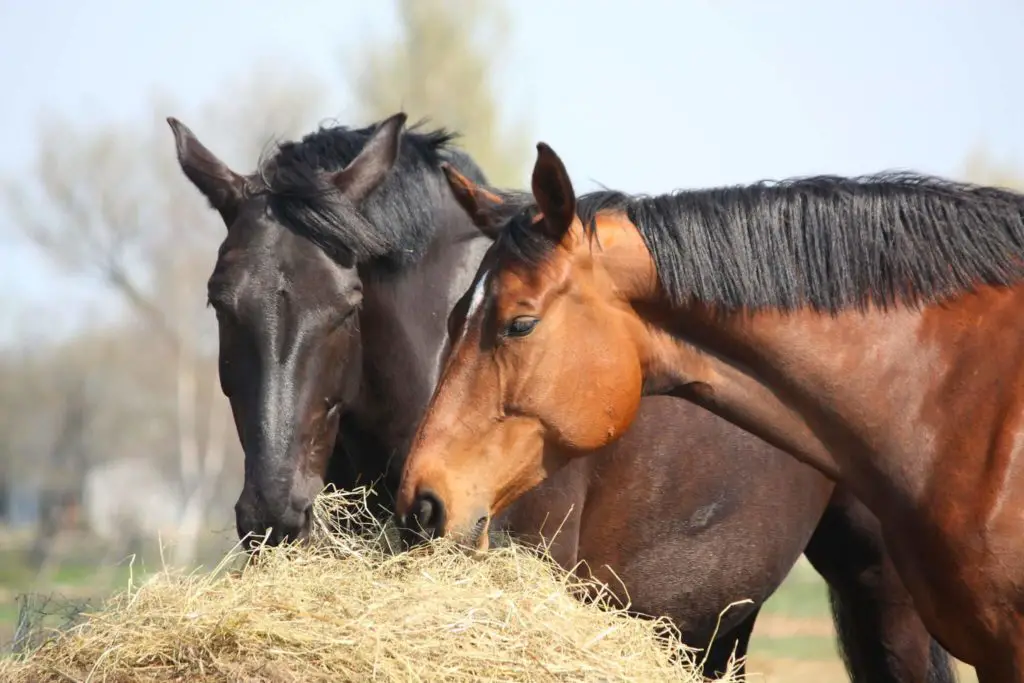As your horse ages, they will be susceptible to different parasites. Choosing the right wormer means selecting a wormer with the correct active ingredients to counter these burdens. It begins by evaluating their age and circumstances.
In this article, we discuss two of the most prevalent parasites that you may encounter.

Table of Contents
Typically, foals are born with very little resistance to worms and are particularly vulnerable to Parascaris equorum, the intestinal roundworm. Whereas cyathostomins, or small strongyles, affects horses of all ages, with more than 54 known species.
Effective worm control is based on targeting the parasites present on your property. To determine which worms are affecting your horse, you should conduct a fecal egg count annually, with the first taking place at six months of age.
Horse Worming & Schedule for Foals and Young Horses
Large roundworms are potentially fatal to foals. If identified on your property, you may need to start worming from one month of age. Macrocyclic lactones (the ML’s) are your best defense against the migrating larvae, followed by Benzimidazole (the BZ’s) at three months to target the adult worms.
Foals should receive at least four parasite treatments in their first year to protect against large worm burdens. By 12-15 months of age, your foal will have developed a strong immunity to roundworms, so your worming program will change to target the next most likely worm burden.
Horse Worming & Schedule for Adult Horses
Cyathostomins are the prevailing parasite affecting horses of all ages. While weanlings and yearlings have less immunity to them, most adult horses can comfortably co-exist with small numbers. However, when large numbers of larvae simultaneously emerge, they cause the disease known as cyathostominosis.
While we can’t eliminate cyathostomins completely, we can significantly reduce the number of larvae present with doses of Moxidectin. Targeting the encysted larvae is most successful during times of the year unfavourable to their survival, such as during hot Summers and cold Winters.
N.B. Be careful when worming your horse to estimate their weight correctly as underdosing will create resistant worms. It is often advisable to change wormers once yearly by active ingredient to a different active ingredient ie if you have been using equest plus tape change to strategy T once in the yearly cycle.
Read More About Horse Worming



